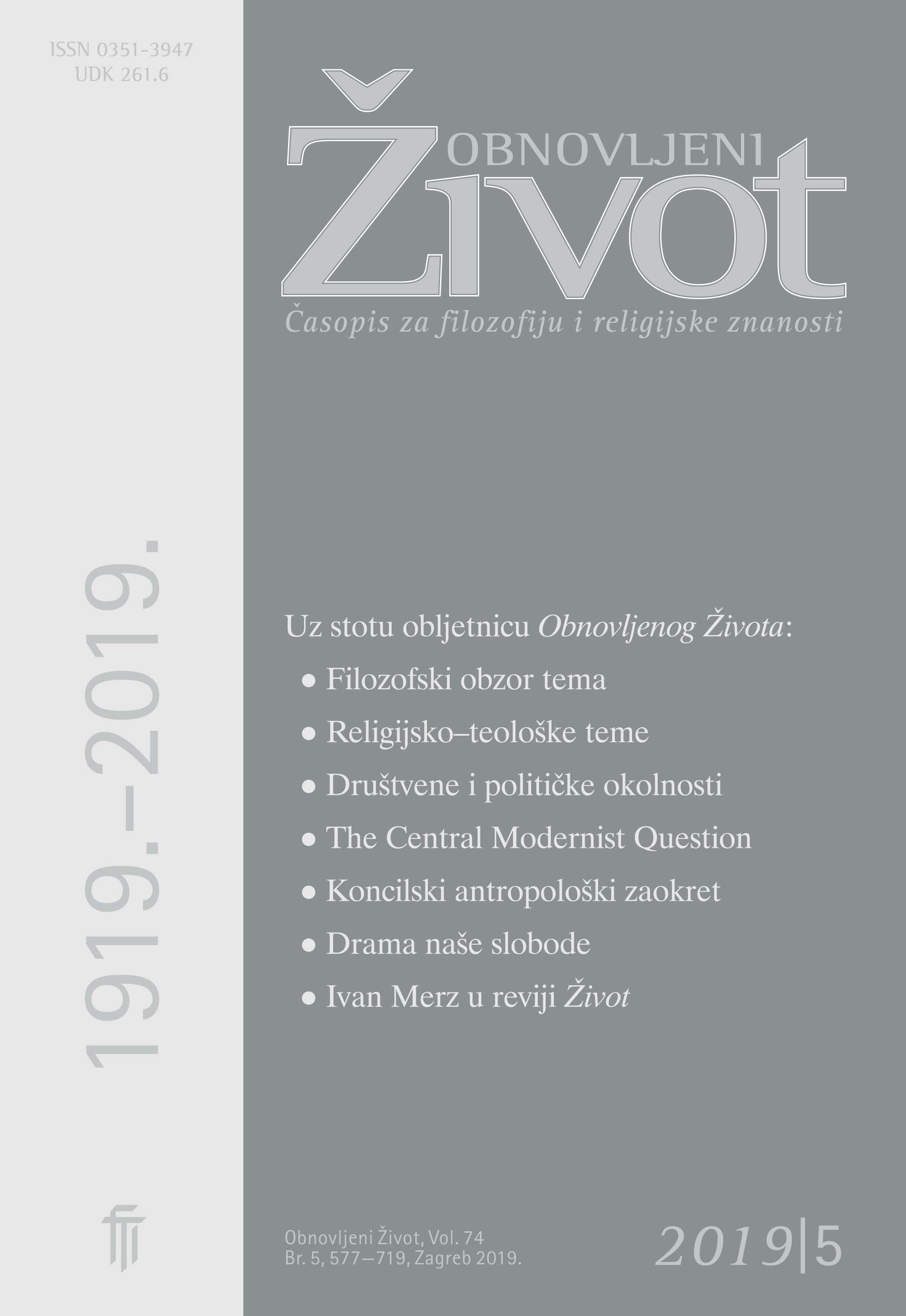The Recognizable Novelty of the Council
Programmatic Goals and the Broader Intellectual Context of the Journal Obnovljeni Život
Keywords:
Obnovljeni Život, scholarly journal, Second Vatican Council, Gaudium et spes, theological anthropologyAbstract
This paper presents an insight into the programmatic goals and broader intellectual context of the journal Obnovljeni Život (Renewed Life) which was first issued under this name in 1971 as the journal which was to carry on the tradition of the journal Život (Life) (1919 — 1944) and which was incorporated into it as though into its proper tradition. The paper firstly introduces in a concise way the foundational and longterm goals of the reissued journal under its new name based on its programmatic text. Then follows a brief insight into the realization of programmatic goals by keeping a foothold in selected papers taken from the journal’s first year of publication. Finally, in the central and most important sections of the paper, the reader is given an insight into the broader intellectual context which was strongly influenced by the Second Vatican Council, its novelty and its central turning point. The latter gave rise not only to the spontaneous appearance of the journal Obnovljeni Život, but also to the creative expression and shaping of the historical moment. Just as did the
Council Fathers, the authors of the journal Obnovljeni Život strive to contribute to a constructive and fruitful dialogue in the building of a common human family, as well as a unique perspective in understanding man and understanding the world in which man finds himself. Though in their reflections the authors rely on their proper theological, Christian and evangelical principles, the authors of the journal Obnovljeni Život enter with ease into a dialogue with the world and enhance their thought by accepting the demands of the modern world which are justified, particularly in the area of human autonomy, human freedom and human dignity.
Downloads
Published
Issue
Section
License
Jednom prihvaćeni članak obvezuje autora da ga ne smije objaviti drugdje bez dozvole uredništva, a i tada samo uz bilješku da je objavljen prvi put u Obnovljenom životu. Uredništvo će obavijestiti autora o prihvaćanju ili neprihvaćanju članka za objavljivanje.
Članci objavljeni u časopisu se, uz prikladno navođenje izvora, smiju besplatno koristiti u obrazovne i druge nekomercijalne svrhe.


